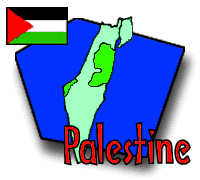Word of the Day: Yah jazah — "to attack"
Place of the Day: Gaza Strip
Tech Fact of the Day: Security checkpoints
Group Dispatch, December 7

Questions? Ask Corinne ![]() !
!
Return to Fast Facts
 |
 |
 |
 |
 |
|
Itinerary/ Journal |
Discussions |
About Palestine |
eDscape Projects |
Scrapbook |
|
|
|
|
|
|
Internet access while in Palestine was provided by PalNet. |
Copyright 1997-2004 BikeAbout. All rights reserved.
